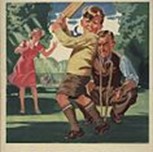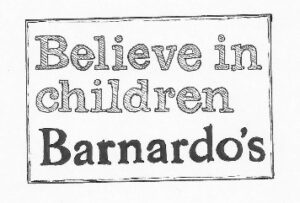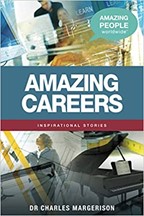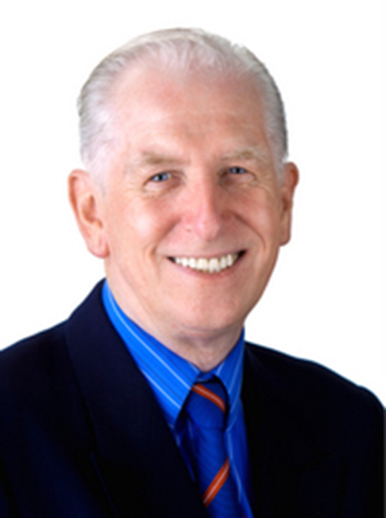By Dr Charles Margerison
Psychologist

“If this boy put as much effort into his studies, as he does into his cricket when bowling, he might make a success.”

“If this boy put as much effort into his studies, as he does into his cricket when bowling, he might make a success.”
That was a report sent to my parents from one of my teachers at school, when I was about 15 years of age. A year later, I left school and gained a repetitive boring job in the office of a large manufacturing company. My parents did not complain, as I was contributing to the family income in tough times. I did not complain, as the school examination-driven approach to education did not motivate me. I was free to make my own choices.
However, my career prospects were not good. I did not have a trade apprenticeship, nor was I training for a profession. The words from the teacher’s report stayed with me. If I put in effort, I could be a success. So, what should I do, and where should I focus my efforts?
Two years later, I thought more about this when I moved to a new administrative job in social services. It opened my eyes to the real world. The people who knocked on our door asking for help were often from the less affluent part of the community. Many of them were unemployed and could not pay their rent. Homeless mothers arrived with their children, looking for a bed in the homeless shelter facility for families. However, husbands were not allowed in. Others arrived in need of care because they were old. Some came from the local jail after serving their sentences.
As the junior unqualified clerk, I met them all. I was on the front desk and took their details. Each day, I heard sad stories from people who were struggling to survive. It made me realise that life could be very hard ‘on the other side of the tracks’, as my colleagues called it.
One of the middle-aged ladies in the office, who was not married, gave me some advice. She told me that to gain a better paid job with prospects for promotion, I should attend night school.
So, I went to the sign up at Birkenhead Technical College and met a man who changed my life. His name was Charles Murphy. He told me that if I worked hard on the courses he taught, I could qualify for a place at university. It was the same message as before. I asked him to put my name on his list and applied for a university, more in hope than expectation.
During the next year, I developed my idea of the ‘can do spirit’. To keep up with the lectures and assignments from my tutor, I got up at 5.30am and studied for 2 hours. I then had a quick breakfast and set off for eight hours of work. After I finished, I did another couple of hours of study, except on two of the nights when I went to the lectures. My estimate is that work, including the travel, was about ten hours a day and study was about 4 hours, with the rest of my time being for meals and sleep.
A year later, I was pinching myself as I walked through the doors of the University of London School of Economics. Charles Murphy and my ‘can do spirit’ had helped me pass the exams. My experience in social services also helped, as I had little money and had to survive in London.
I worked hard and passed the three year university course. However, I was never asked to write about that or what I had learned during four years of employment. Nor was I asked to write what I had learned from my experience of surviving in London.
The understanding of the journey I had taken, and the experience of others, fascinated me. So, I chose to do a Psychology doctoral degree. I studied how children at primary level learned about the society in which they lived, and how they came to understand themselves and their abilities.
 A few years later, I gained a senior role as a University teacher and was asked to advise managers and team members in large companies. These were people in their thirties and forties, who had been selected for career development courses. As a psychologist, I was asked to help them develop their understanding of self and others, in order to become more effective leaders.
A few years later, I gained a senior role as a University teacher and was asked to advise managers and team members in large companies. These were people in their thirties and forties, who had been selected for career development courses. As a psychologist, I was asked to help them develop their understanding of self and others, in order to become more effective leaders.
The more I discussed their work and lives, the more I understood ‘can do spirit’ was a key factor. Some of those attending had a determination to chart their own direction. Others were willing to go along with the system and do what they were asked. Both groups worked hard to get to their level – one group where ‘followers’ and the other group were more ‘self-directed’.
This experience led me to question how amazing people in history had succeeded. Therefore, I started to study the lives of more than 500 people who made major achievements in their lives. These include game-changers like Marie Curie, William Shakespeare, Nelson Mandela, Helen Keller, Louis Pasteur and other amazing achievers,
I looked for similarities in the way they worked. I noted that having a purpose became a guiding force in their lives. However, there was no one purpose. Each person chose a purpose that fitted their personal interests.
Elizabeth Blackwell qualified as a teacher, and was concerned by the lack of medical help to those in need. She applied to medical colleges, and was rejected 29 times because she was a woman. Despite this, she persevered and became the first qualified female doctor in the USA and also the UK.
 Thomas Barnardo was teaching at a school for the poor. One of the boys said he had no home and that he lived in old buildings with other orphans. That led Thomas to his major purpose and he established what are known as Barnardo Homes, for children in need.
Thomas Barnardo was teaching at a school for the poor. One of the boys said he had no home and that he lived in old buildings with other orphans. That led Thomas to his major purpose and he established what are known as Barnardo Homes, for children in need.
Nancy Wake arrived in the UK from New Zealand at the start of the 2nd World War. She had no qualifications, however, she gained a job as a reporter that took her to France. There, she saw the atrocities committed by the Nazis. She realised her purpose was to fight for freedom and excelled as a special operative, working with the resistance.
These are just a few of the outstanding contributions made by people who discovered their purpose.
In addition to their guiding purpose, all the people I studied developed and applied ‘can do spirit’’ That meant, despite the difficulties and obstacles, they fought with persistence and determination to achieve their purpose. Beyond their technical skills, they had the burning desire to succeed. Their ‘can do spirit’ attitude was what kept them going even in the darkest hours. I have used the lessons from these life stories in our organisation’s current work with schools in what is referred to as character education.

How do students learn about purpose and ‘can do spirit’? Various approaches have been developed. Most focus on concepts like resilience, courage, empathy, persistence and fairness. These are reflected in projects, charity work and also in sports. Organisations like the Scouts and Girl Guides, sometimes called Girl Scouts, support an action approach. Likewise, the Duke of Edinburgh Awards provide support structures. So, there are many efforts to help students develop their character in action.
However, the area that needs more attention is ‘purpose’. I am now working with teachers and students to help them learn from amazing people who developed outstanding careers. It starts by gaining experience and self-understanding.
In that way, students can identify their purpose and preferences. They begin to discover what they like and dislike. Once they do this, and find work that aligns with their interests, they become motivated to learn and develop their version of ‘can do spirit’. This is central to the science of self-understanding and self-development.
As I reflect on my career, I can see that by chance I discovered a purpose that is still important. There were many who helped me, like the lady in the office who gave me good advice, and Charles Murphy who guided my studies. Therefore, we all need supporters, and most of all we need a purpose, and the ‘can do spirit’ to achieve it.

Students can learn a lot from understanding the life achievements of amazing people. They will see that purpose led to passion, courage, persistence, innovation, time management, teamwork and communication.
Therefore, I have created education resources to support students. These are available to peruse HERE.

Amazing Careers – Charles Margerison – https://www.amazon.com/Amazing-Careers-People-Worldwide-Inspirational/dp/1921629045
.

Dr Charles Margerison, President and founder of Amazing People Worldwide, is a Psychologist. He is also President of Amazing People Schools. Dr Margerison has consulted widely for major organizations in the fields of organizational and educational psychology. He was previously Professor of Management at Cranfield University, UK, and the University of Queensland, Australia. He founded Amazing People Worldwide in 2006 and is supported by a dedicated global team. He previously co-founded Emerald Publications, and Team Management Systems and has authored more than 30 books. Dr Charles is also the creator of ‘Can Do Kids Worldwide, a virtual music group that helps students to learn about countries and cultures through music. He has also developed Imagineland, for early learners. You can follow him on Linked in .
For more information, please email info@amazingpeopleworldwide.com
Websites:



Copyright © 2021. Amazing People Worldwide.
All Rights Reserved.
This site is protected by reCAPTCHA and the Google
Privacy Policy and Terms of Service apply.



